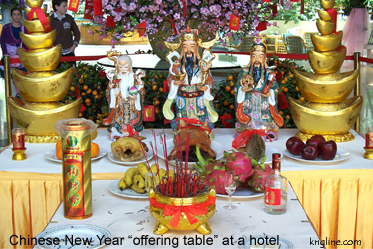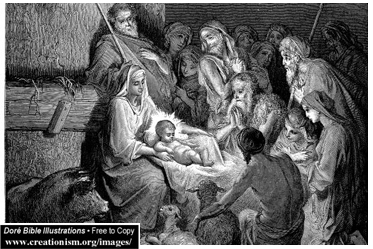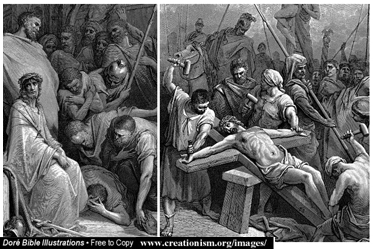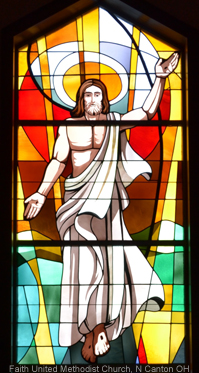(continued from other column)
He who has the Son has life; he who doesn't have the
Son lives in the condemnation accrued from his own first childhood
act of selfishness to the moment of his death. (See 1 John 5:12
& John 3:18) The breath of life is an unfathomable gift, a
gift that our wisest thinkers and scientists cannot adequately
explain the origin, must less the purpose of. While
we make use of the breath of life, we constantly choose between
intentional dependence on the benevolence of heaven
or independence from heaven-sent love, forgiveness,
purpose and peace. When those breaths cease, we must face the
consequences of our choices—eternal life as God's dependents
(i.e., adopted into His family as sons and daughters), or eternal
independence from God, and thus from all that is endowed with
heaven's love, forgiveness, purpose and peace. The Bible's
descriptions of hell are often figurative, but it seems to be a
place of suffering, regret, loneliness, and agonizing memories. In
contrast (and the Bible's description of God's home is often
equally figurative), heaven is portrayed as a place of healing,
joy, brotherhood, and forgiveness—a place where every tear is
wiped away, and the forgiven can sing and worship with angels, (in
the words of the classic hymn) “lost in wonder, love and praise.”
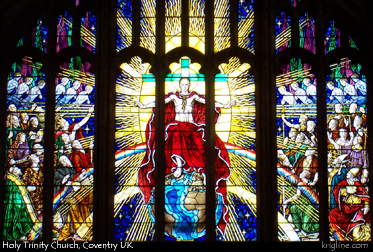
That is the Gospel, and that is the choice
we need to be able to present to whoever asks about the hope that
is in us.
Bad News before Good News
The President of my graduate school liked to say:
“Until you hear the thunder claps of
Mount Sinai, you can never appreciate the grace notes of Calvary.”
(Dr. Robertson McQuilkin, former president of Columbia
International University) In other words, we can't comprehend the
grace of the Gospel until we understand the harsh truth that we
stand condemned for disobeying God's Law (represented here by “Mt.
Sinai” where God revealed the 10 Commandments). Thus, most
presentations of the “good news” start with the “bad news.” And
while it probably won't be helpful to start a Gospel presentation
with “Judgment and Hell,” be sure you have heard the “thunder of
Sinai” yourself. God's standards reveal His character and thus the
characteristics of Heaven, which in turn explain why unholy people
can never enter there without the extraordinary measures of the
cross of Christ. Put another way, many people can't see the need
to “be found in Christ” because they don't understand how “lost”
they really are.
Much of the Old Testament is devoted to revealing the
holy nature of God, often hand-in-hand with the consequences of
straying from the holy “image” God stamped deep into our genetic
makeup. We could turn to many places for examples, but let me
quote from one of the Old Testament's few female voices. Samuel
was one of Israel's great prophets, and as his mother Hannah
presented the child Samuel to the Lord for service, she prayed:
2
“There is none holy like the
Lord: for there is
none besides you; there is no rock like our God.
3
Talk no more so very proudly,
let not arrogance come from your mouth; for the
Lord is a God of
knowledge, and by him actions are weighed….
6
The
Lord kills and brings
to life; he brings down to Sheol [the place of the dead] and
raises up.
7
The
Lord makes poor and
makes rich; he brings low and he exalts….
9
“He will guard the feet of his
faithful ones, but the wicked shall be cut off in darkness,
for not by might shall a man prevail.
The adversaries of the Lord
shall be broken to pieces;
against them he will thunder in
heaven. The Lord will
judge the ends of the earth...”
(from 1 Sam 2:2-10)
“The Thunder of Sinai and grace notes of Calvary” are
also seen in the very last words of the Old Testament, written by
the prophet Malachi:
1
“For behold, the day is coming,
burning like an oven, when all the arrogant and all evildoers will
be stubble. The day that is coming shall set them ablaze, says the
Lord of hosts, so
that it will leave them neither root nor branch.
2
But for you who fear My name,
the sun of righteousness shall rise with healing in its wings. You
shall go out leaping like calves from the stall.
3
And you shall tread down the
wicked, for they will be ashes under the soles of your feet, on
the day when I act, says the
Lord of hosts.
4
“Remember the law of My servant
Moses, the statutes and rules that I commanded him at Horeb for
all Israel.
5
“Behold, I will send you Elijah
the prophet before the great and awesome day of the
Lord comes.
6
And he will turn the hearts of
fathers to their children and the hearts of children to their
fathers, lest I come and strike the land with a decree of utter
destruction.” (Malachi 4:1-6)
The New Testament begins, in a sense, with
those very words, as an angel quotes that prophecy to Zechariah in
the Temple (Luke 1:16). This angel reveals that the time of
deliverance had come. Zechariah's son, John the Baptist, would be
the forerunner to the promised deliverer, the Christ or Messiah:
Jesus.
Jesus spoke clearly on the “bad news” of condemnation
and judgment as well. In John 3:17-19 Jesus says:
17
“For God did not send his Son
into the world to condemn the world, but in order that the world
might be saved through him.
18
Whoever believes in him is not
condemned, but whoever does not believe is condemned already,
because he has not believed in the name of the only Son of God.
18
And this is the judgment: the
light has come into the world, and people loved the darkness
rather than the light because their works were evil.”
This harsh reality
is the context of the Gospel's “good news”, epitomized by the
already-quoted verse that literally precedes that passage: John
3:16 (ESV)
“God so loved the world, that he gave his only Son, that whoever
believes in him should not perish but have eternal life.”
One more thing needs to be said about the “bad news,”
and about hell in particular. Many people have a bizarre idea that
hell is an extended, drunken party for all who did not choose God,
in an evil kingdom ruled by Satan. They console themselves with
notions like, “I'll see my friends in Hell, so it won't be so
bad.” This is not the picture painted in the Bible, and
especially in the words of Jesus (see Luke 16:19ff). Friendship,
love and family are among God's greatest gifts so
don't expect them in Hell; if God is absent, God's good gifts and
attributes will be absent too. Nor will Satan/the devil be ruling
over this supposedly-alternative kingdom; in fact, Hell is the
prison created for this inmate and his fallen followers. Among the
last words that judged humans will hear, according to Jesus, will
be: “Depart from me, you cursed, into
the eternal fire prepared for the devil and his angels.”
(Matt 25:41) Revelation adds:
“the devil who had deceived them was thrown into the lake of fire
and sulfur where the beast and the false prophet were, and they
will be tormented day and night forever and ever.” “And if
anyone's name was not found written in the book of life, he was
thrown into the lake of fire.” (Rev 20:7-15)
The only reference
to “the book of life” outside several verses in Revelation is
Philippians 4:3, where Paul lists several
“fellow workers whose names are
in the book of life”--people who
“labored side by side with me in the
Gospel.”
How to Share the Gospel
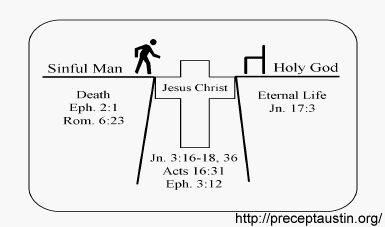
There are many ways to present this simple message to
those who don’t understand it, and and every Christians needs to
have the confidence to be able to do this. Many of us don’t
share our faith with others because, well, we don’t know how. Our
fear of questions we can’t answer too often keeps us silent when
people begin to ask what we believe.
Some people like
“the Romans’ Road.” I Googled this
and got over 10 million hits, so you can find it described in
detail on line. But basically, it takes you through several
Scriptures in the book of Romans. For example, Romans 3:23 says we
have all sinned; 6:23 is next (I'll talk about that later); Rom
5:8 says that “while we were yet
sinners, Christ died for us”; 10:13 promises that anyone
who calls upon the Lord shall be saved; and finally 10:9 says:
“if you confess with your mouth that
Jesus is Lord and believe in your heart that God raised him from
the dead, you will be saved.” (ESV) The Romans Road is
simple and thorough, and on-line you can find lots of bookmarks
and other graphics to print and give to friends.
The One-verse Method
Now, I have a terrible memory for names and
numbers, so I can’t seem to remember where those verses are when I
need them. Thus I prefer the so-called “one verse method”. Even I
can remember one verse! The first time I heard of it, someone
asked, “If I could explain the basic idea of the Bible in just one
sentence, would you like to hear it?” Most people find that offer
intriguing enough to stop and listen. The One-verse Method uses
Romans 6:23: “For the wages of sin is death, but the free gift of God is eternal
life in Jesus Christ our Lord.” If you’ve got a pen, you
can make notes in your bulletin over just about every word in that
Scripture, and use it to explain the Gospel… [And if you can't
get it all down, just read this message on line later!]
“Wages”—Are “wages” something you deserve or a
gift? “Wages” come to us because we deserve them. If your
boss withheld your wages, you’d rightfully be upset.
“Sin”—In the Bible’s original Greek language, “sin”
meant to “miss the mark” not to “break the law.” If you’ve seen
the Olympics, you know that the marksman is aiming for a small
target. Jesus told us what that target is for our lives: “Be
perfect as your Father in heaven is perfect.” (Matt 5:48) Yes,
that’s a high standard, and whenever we miss the mark, the Bible
calls it sin.
“Death”—What “wages” do we earn when we “sin”? Death.
In the Bible, “death” is the separation from God and all that is
good: God’s love, providence, truth, relationships, joy, peace,
and life itself. Without all that is “good,” the dead are left
with only regret, bitterness and pain. It is not the kind of
“wage” I look forward to getting, but the Bible says it is what
I’ve earned.
“But”—I love this word in the Bible, because it tells
me that I have an alternative, in this case to getting a wage I’ve
earned but really don’t want.
“Free gift”—we all like gifts. We don’t earn them, and
don’t need to pay for them! That’s much better than a wage we have
to work for.
“God”—God is just as much the opposite of
sin as a gift is the opposite of a wage. God is
perfect; heaven is God’s perfect home, for perfect beings. Without
God’s “free gift” we have no hope of participating in God’s family
or living in His eternal home.
“Eternal life”—Speaking of opposites, this is the
opposite of “death”. It is an invitation to “participate in the
Divine nature” or “share in the very being of God” (2 Peter
1:4)—that is, it is an invitation to enjoy all those things I
mentioned above: God’s love, providence, truth, relationships,
joy, peace, and life itself. I understand the word
“eternal” to point to a quality rather than an endless
amount of time. The “eternal” abides and endures without end,
without limits or limitations. This is a remarkable gift: the
invitation to abide and be enfolded in God’s love eternally. Do I
want my wage of “death” or God’s gift of “life”?
I’ll take “life”, thank you!
“In”—If something is “in” then it is surrounded or
enfolded in it, like sugar dissolved in a cup of coffee or tea.
It’s not on the side, or waiting to join up, or thinking about the
possibilities; it is IN the coffee in a way that can’t be undone.
“In Jesus”—As I said, we can’t hope to enter God’s
perfect home on our own, but if we are “IN” God’s perfect son,
Jesus, then we actually belong there! But it isn’t enough to be
“around” or “near” Jesus, or waiting to join up, or thinking about
the possibility of being a Christian. To be “in Jesus” is to make
a commitment to “lose yourself” (as it were) and become a part of
something greater than yourself. Sugar crystals are abrasive, but
the coffee’s warmth takes away the abrasiveness and releases the
sugar’s sweetness. When we give our life to Jesus, we find our
rough edges melting away, as His goodness releases goodness in us,
and miraculously makes us more like Him.
“Christ”—This isn’t just Jesus’ last name; it is a
title, like “doctor” or “professor.” This miraculous
exchange—death into life, human weakness into Christ-like
perfection—can only take place because Jesus was more than mere
man. He was God’s Son, the Christ (the predicted and
anointed One), sent into the world to save people from their sins,
and given the power to grant forgiveness of sin to anyone who asks
Him. His death on the cross paid the penalty for my sin;
that was what Jesus, the Christ, was born into our
world to do (Matt 1:21).
“Our”—Put simply, this reminds us that Christianity is
not an individual event. When we are “in Jesus” we become
part of a family, called “the church.” No one can experience and
grow in God’s goodness, love, joy, etc., without the fellowship of
their new family.
“Lord”—the last word in this verse means “boss” in
modern English, and it points to our decision to allow the Christ,
the Son of God, to work His miracle in us and make us a part of
Himself. He won’t do it without our permission. Jesus did the
work, paying your “wages” on the cross; He is the only one who
deserves entrance into “eternal life” but He invites us to enter
“in Him.” He holds out his nail-scarred hands, offering this
remarkable gift—but it is up to you and me to reach out and
embrace it by making Him our boss—the Lord of our lives.
Yes, that’s a steep cost; it costs us everything we
have and everything we want. But look what we get in
return! The wages of our sin are canceled…no more eternal death
and separation from God and His goodness. Indeed, we get to be “in
Jesus,” a part of the family of God, and together we serve our
boss who lovingly takes away our rough edges and makes us into
people like Himself, filled with love, joy, peace, patience,
kindness, goodness, self-control, mercy, forgiveness…
Have you made Jesus your boss?
His hands are stretched out, even now, and His gift is only a
prayer away.
Fate, Joy and a Simple Prayer
If you can still read or hear his message, NOW is the
time to decide your fate: heaven or hell. You may wish for a third
choice, but according to the Bible that exists only in fantasy.
Furthermore, if we reject the Bible's authority, we stand naively
declaring our independence from all that God has revealed.
As CS Lewis put it:
There are only two kinds of people in the
end: those who say to God, "Thy will be done," and those to whom
God says, in the end, "Thy will be done." All that are in Hell,
choose it. Without that self-choice there could be no Hell. No
soul that seriously and constantly desires joy will ever miss it.
Those who seek find. To those who knock it is opened.
--C.S. Lewis, The Great Divorce,
Chapter 9 (1946)

And I like the way Prof. Lewis equates salvation
and heaven with “joy.” I suppose you could shake your fist
at God for not giving us more choices, but I prefer to think of it
like the joy of a child eating her birthday cake. I don't have to
understand what is in the cake or how to make it; my part is
simply loving the father who bought it, and enjoying the delicious
gift of his love. Our salvation involves a serious choice, but it
is the choice to accept unfathomable love and joy.
I love this quote from John Wesley: (writing to a
critic)
“You seem to apprehend that I believe
religion to be inconsistent with cheerfulness, and with a
sociable, friendly temper; so far from it I’m convinced that as
true religion or holiness cannot be without cheerfulness, so
steady cheerfulness cannot be without holiness or true religion;
and I am equally convinced that true religion has nothing sour,
austere, unsociable, or unfriendly about it; on the contrary it
implies the most winning sweetness, the most amiable softness and
gentleness.”
—Rev. John Wesley
(1703-1791)
If you have ever committed a selfish act, said an unloving
word, or done something that fell short of perfection, you have
already set your course. Your choices have lured you into Vanity
Fair, with its colorful distractions, tasty inclinations and
worldly values. But as Bunyan might have put it, ‘just past the
lights of Vanity Fair there burns a fire you don’t want to
see.’ So I declare to you the comforting words of the prophet
Malachi: “I the
Lord do not
change...; Return to me, and I will return to you, says the
Lord of hosts.”
(from Mal 3:6-7 ESV) The way of heaven lies open to all who
repent—all who turn around—and choose trust over works,
faith over knowledge, grace over justice,
and love over all.
Even a child can pray something like this:
“Dear God, I've looked around and have to believe that there is
more to life than what I can see and know. At Christmas you gave
us a Son to point the way; at Easter He paid to make that way open
to even me. From today on, I want to know You, to learn to love
You, and to live for You. I want to be a part of your family,
loving brothers and sisters who have also accepted your gift of
eternal life. I receive Your forgiveness. Give me eyes of faith so
I can see the way You see. Put Your heart in me so I can love the
way You love. Direct my ways so I can be all that You designed me
to be. I pray in Jesus' name, Amen.”
If you prayed that prayer, or even rededicated your life to Christ
today, please don't keep it to yourself! Tell me, Pastor, or any
of the church leaders. We want to
celebrate with you, and to help you grow. As we all stand, and as
the music team leads us in a soft, closing song, why not come up
and talk to one of us right now?
============
Before starting this message, I sang the following song.
Blooming out of Season
(by Michael Krigline, 8/13/85—Guangzhou)
Like a flower bloomin’ out of season;
like a friend when home is so far away
Was His love breaking into my lonely life
with a light that turned my night into day
Like a ceasefire at the end of a life-long war,
was His peace as it flooded my soul
And I wouldn’t be free if not for Calvary
Where Christ’s blood was shed to make me whole.
Savior, Eternal Life, Perfect Love Who died for me
Jesus, only Jesus; You’ll only find true life in the Lord.
You can search to the ends of this earth, my friend,
To find freedom, riches, peace, or true love.
I’ve been there and I can tell You they’re only found
In the one the Father sent from Above
You feel safe ‘cause you believe that God is love
And you think that Jesus was a great man
But if Christ isn’t your boss, your life and soul are lost
‘cause only servants can accomplish God’s plan.
Savior (how I love Him), Eternal Life (how Praise Him)
Perfect Love (God’s only son), Who died for me (alive in me)
Jesus (if you love Him); only Jesus (then you’ll serve Him)
You’ll only find true life in the Lord.
Like a flower bloomin’ out of season,
Jesus’ life can grow in us everyday
But like flower seeds know, you’ve got to die to grow,
if you want life, it’s the only way
--If you want life Jesus is the only way.

